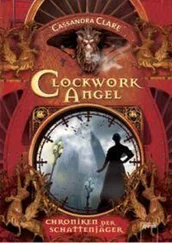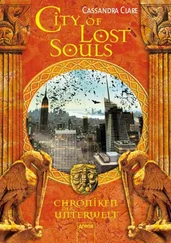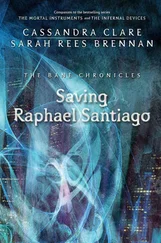The Runaway Queen
The Bane Chronicles 2
by
Cassandra Clare

There was a smell to Paris in the summer mornings that Magnus enjoyed.
This was surprising, because on summer mornings Paris smelled of cheese that had sat in the sun all day, and fish and the less desirable parts of fish. It smelled of people and all the things that people produce (this does not refer to art or culture but to the baser things that were dumped out of windows in buckets). But these were punctuated by other odors, and the odors would shift rapidly from street to street, or building to building. That heady whiff of a bakery might be followed by an unexpected flush of gardenias in a garden, which gave way to the iron-rich pong of a slaughterhouse. Paris was nothing if not alive—the Seine pumping along like a great artery, the vessels of the wider streets, narrowing down to the tiniest alleys . . . and every inch of it had a smell.
It all smelled of life —life in every form and degree.
The smells today, however, were a bit strong. Magnus was taking an unfamiliar route, one that took him through quite a rough patch of Paris. The road here was not as smooth. It was brutally hot inside his cabriolet as it bumped its way along.
Magnus had animated one of his magnificent Chinese fans, and it flapped ineffectively at him, barely stirring the breeze. It was, if he was completely honest with himself (and he did not want to be), a bit too hot for this new striped blue-and-rose-colored coat, made of taffeta and satin, and the silk faille waistcoat embroidered with a scene of birds and cherubs. The wing collar, and the wig, and the silk breeches, the wonderful new gloves in the most delicate lemon yellow . . . it was all a bit warm .
Still. If one could look this fabulous, one had an obligation to. One should w e a r everything , or one should wear nothing at all.
He settled back into his seat and accepted the sweat proudly, glad that he lived by his principles, principles which were widely embraced in Paris. In Paris people were always after the latest fashion. Wigs that hit the ceiling and had miniature boats in them; outrageous silks; white paint and high, blushed cheeks on the men and the women; the decorative beauty spots; the tailoring; the colors . . . In Paris one could have the eyes of a cat (as he did) and tell people it was a trick of fashion.
In a world such as this, there was much work for an enterprising warlock.
The aristocracy loved a bit of magic and were willing to pay for it. They paid for luck at the faro table. They paid him to make their monkeys speak, to make their birds sing their favorite arias from the opera, to make their diamonds glow in different colors. They wanted beauty spots in the shapes of hearts, champagne glasses, and stars to spontaneously appear on their cheeks. They wanted to dazzle their guests by having fire shoot from their fountains, and then to amuse those same guests by having their chaise longues wander across the room. And their lists of requests for the bedroom—
well, he kept careful notes on those.
They were nothing if not imaginative.
In short, the people of Paris and the neighboring royal town of Versailles were the most decadent people Magnus had ever met, and for this he revered them deeply.
Of course, the revolution had put a damper on some of this. Magnus was daily reminded of that fact—even now, as he pulled back the blue silk curtains of the carriage. He received a few penetrating looks from the sans-culottes pushing their carts or selling their cat meat. Magnus kept apartments in the
Marais, on the rue Barbette, quite near the Hôtel de Soubise, home of his old (and recently deceased) friend the
Prince of Soubise. Magnus had an open invitation to wander the gardens or entertain himself there anytime he chose.
In fact, he could walk into any number of great houses in Paris and be warmly greeted. His aristocratic friends were silly but mostly harmless. But now it was problematic to be seen in their company. Sometimes it was problematic to be seen at all. It was no longer a good thing to be very rich or well connected.
The unwashed masses, producers of the stink, had taken over France, overturning everything in their unwashed path.
His feelings about the revolution were mixed. People were hungry. The price of bread was still very high. It did not help that the queen, Marie Antoinette, when told that her people could not afford bread, had suggested that they eat cake instead. It was sensible to him that the people should demand and receive food, and firewood, and all the basic needs of life. Magnus always felt for the poor and the wretched. But at the same time, never had there been a society quite as wonderful as that of France at its dizzying heights and excesses. And while he liked excitement, he also liked to have some sense of what was going on, and that feeling was in short supply.
No one quite knew who was in charge of the country.
The revolutionaries squabbled all the time. The constitution was always being written. The king and queen were alive and supposedly still somewhat in power, but they were controlled by the revolutionaries.
Periodically there would be killings, fires, or attacks, all in the name of liberation. Living in Paris was like living in a powder keg that was stacked on top of several other powder kegs, which were in a ship tossing blindly at sea. There was always the feeling that one day the people—the undefined people —just might decide to kill everyone who could afford a hat.
Magnus sighed and leaned back out of the range of prying eyes and put a jasmine-scented cloth to his nose.
Enough stink and bother. He was off to see a balloon.
Of course, Magnus had flown before.
He’d animated carpets and rested upon the backs of migrating flocks of birds.
But he’d never flown by a human hand.
This ballooning thing was new and, frankly, a little alarming. Just shooting up into the air in a fabulous and garish creation, with the whole of Paris staring at you . . .
This, of course, was why he had to try it.
The hot air balloon craze had largely passed him by when it had first been the rage of Paris, almost ten years before.
But just the other day, when Magnus had had perhaps a little too much wine, he’d looked up and seen one of the sky-blue, egg-shaped wonders drifting past, with its gold illustrations of zodiacal signs and fleurs-de-lis, and all at once he’d been overcome with the desire to get into its basket and ride over the city. It had been a whim, and there was nothing
Magnus attached more importance to than a whim. He’d managed to track down one of the Montgolfier brothers that very day and had paid far too many louis d’or for a private ride.
And now that Magnus was on his way to take said ride on this hot afternoon, he reflected back on just how much wine he had drunk on the afternoon when he had set this all up.
It had been quite a lot of wine.
His carriage finally came to a stop near the Château de la Muette, once a beautiful little palace, now falling apart.
Magnus stepped out into the swampy afternoon and walked into the park.
There was a heavy, oppressive feel to the air that made Magnus’s wonderful clothes hang heavily. He walked along the path until he came to the meeting spot, where his balloon and its crew awaited him. The balloon was deflated on the grass—the silk just as beautiful as ever, but the overall effect not as impressive as he had hoped. He had better dressing gowns, when it came down to it.
Читать дальше













